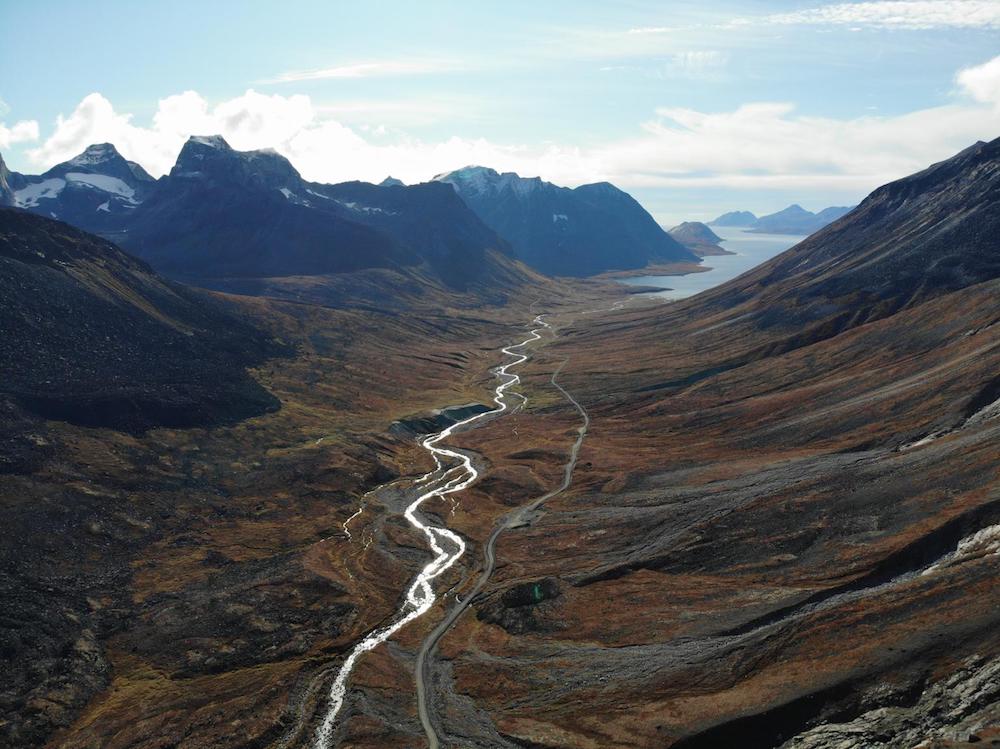Two key steps Greenland should take to make sure mining benefits all its citizens
By adopting world-class standards and creating a sovereign wealth fund, Greenland can ensure mining serves its best interests.

Greenland has vast mineral resources, including nickel, gold, and uranium, but at present the country only has two producing mines. Although Greenland has had autonomous rule since 2009, the economy depends on Danish subsidies, which represent one-third of national income. Greenland’s government has identified the mining industry as a source of national revenue and local jobs. The 2019-2023 National Mineral Strategy sets the goal of simplifying the transition from resource exploration to exploitation, and the nation is actively seeking foreign investment in the mining sector. There is tremendous potential for growth. A 2018 Danish geological study inferred resources of 125,000 tons of uranium under the Kvanefjeld Plateau (the sixth-largest deposit in the world), at a time when 70 new nuclear reactors are under construction globally.
Greenland’s eagerness to accelerate mining raises two key questions. First, how will Greenland’s government ensure that profits from mining are managed sustainably and distributed equitably? Second, how will Greenlandic citizens be consulted during the exploration, construction, and resource exploitation stages of mine development?
In the 1970s, Alaska found itself confronted with similar questions about natural resource management. Similar to Greenland, Alaska was a low-income, sparsely populated Arctic state without a diversified economy. In 1976, oil from Alaska’s North Slope began flowing to market through the trans-Alaska pipeline, and Governor Jay Hammond amended the state constitution to create the Alaska Permanent Fund. Some 25 percent of state revenues from land leases and oil royalties are contributed to the fund, which will be kept intact in perpetuity to benefit future generations of Alaskans.
From an initial investment of $734,000 in 1977, the fund increased to over $53 billion by 2015. Interest from the fund finances state operations and infrastructure investment. Sovereign wealth funds have also been used to manage mining revenues. Chile’s copper industry and Botswana’s diamond mines both support national funds that increase government revenue.
These examples of natural resource management hold promise for Greenlanders. They demonstrate that income from mining can fund government operations, and investments offer the state a buffer against commodity price fluctuations. The mining sector is not a panacea to eliminate Greenland’s dependence on Danish subsidies. However, resource extraction may be part of a diversified and sustainable national economic strategy. One question remains: How should community consultations on the social and environmental effects be managed?
About 88 percent of Greenland’s 56,000 residents are Inuit. Outside of the capital, Nuuk, where 30 percent of the population resides, many people’s lives are still tied to the land. Many of Greenland’s Indigenous residents continue to rely on travel over the sea ice in winter and engage in subsistence hunting. For many of these Greenlanders, the potential of economic growth from a sovereign wealth fund may be less important than limiting industrial activity on their land.
Uranium ore emits dangerous radon gas, and improper ore processing can cause uranium to leach into groundwater. Greenland’s government has an opportunity to set high social and environmental performance standards from the outset of mining projects. I propose that Greenland raise the standards of the 2009 Mineral Resources Act, and require foreign investors to comply with mining performance standards from the International Finance Corporation.
The IFC standards are recognized as the “best practice” international benchmark for managing social and environmental risk. They require companies to integrate pollution management plans into their business activities, avoid or mitigate all threats to biodiversity, and comply with strict workplace safety standards. Perhaps most importantly, IFC-compliant companies must seek the free, prior informed consent of local communities before to breaking ground, and develop specialized engagement plans for vulnerable people and Indigenous communities. These consultations will allow Greenlanders to accurately understand the risks and opportunities of mining, and express their preferences and concerns.
The outcome of the consultations remains uncertain. It is possible that Greenlanders will be concerned that mining threatens their traditional way of life, and ask their representatives to limit mining activity. Conversely, Greenlanders may see mining as their opportunity to achieve financial independence from Denmark. In this case, the Inatsisartut can create a sovereign wealth fund to manage revenues fairly and sustainably.
Greenland faces a great challenge and a great opportunity. Over the course of this consultation process, Greenlanders will be asked to envision what they want their lives to be like five, 20, or 50 years in the future. This future holds many uncertainties. Climate change will reshape our planet in drastic ways, commodity prices will fluctuate, and a new generation of Greenlanders may seek complete independence from Denmark. Requiring mining companies to actively consult with communities offers an opportunity to plan for that future together, and chart a shared path forward.
Samuel Gant is a Master in Public Policy candidate at Harvard and a Master of Business Administration candidate at Dartmouth. He previously worked in Corporate Social Responsibility for Teranga Gold Corporation.

The views expressed here are the writer’s and are not necessarily endorsed by the Arctic Initiative or ArcticToday, which welcomes a broad range of viewpoints. To submit a piece for consideration, email commentary (at) arctictoday.com.